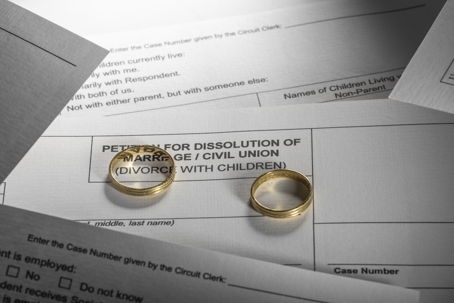What is a breach of fiduciary duty in business ownership?
A breach of fiduciary duty is a legal concept that refers to the failure of a person in a position of trust (such as joint owners in a business or business venture) to act in the best interests of the person or entity that they are entrusted with. In the context of divorce, a breach of fiduciary duty can occur when one spouse fails to act in the best interests of the other spouse or the business that they own together.
There are a number of ways in which a spouse can breach their fiduciary duty in a business during divorce. Some common examples include:
- Hiding assets. One spouse may hide assets from the other spouse in order to gain an advantage in the divorce. This could include things like transferring assets to another person or business, or failing to disclose the existence of assets. If discovered, this is going to cause a lot of negative issues for the wrong-doing spouse. This could be addressed both, in the context of the divorce case, and in many cases, particularly if there are other business owners or shareholders, a business lawsuit in addition to the divorce case.
- Mismanaging assets. One spouse may mismanage business assets in a way that harms the business or the other spouse's interests. This could include things like making poor business decisions, wasting assets, or using business assets for personal expenses. In some circumstances, a joint business owner's spouse later learned that their business owner's spouse has used business funds in a way that can appear legitimate such as providing salary funds to a "worker" who is actually an affair partner.
- Engaging in self-dealing. One spouse may engage in self-dealing, which is when they use their position in the business to benefit themselves at the expense of the other spouse or the business. This could include things like paying themselves excessive salaries or bonuses or taking out loans from the business without repaying them or even paying for or facilitating expenses that are not jointly agreed upon.
- Abusing their power. One spouse may abuse their power in the business by making decisions that are not in the best interests of the business or the other spouse. This could include things like firing employees without cause, changing the terms of employment without notice, or making decisions that are designed to harm the business or could inadvertently harm the business due to a lapse in judgment.
If you believe that your spouse has breached their fiduciary duty to you in your joint business ownership during divorce, it is important to speak with an experienced family law attorney. An attorney can help you understand your rights and options, and develop a legal strategy to address the issues and concerns you are facing.
It is also important to note that the consequences of a breach of fiduciary duty can be severe. In some cases, the breaching spouse may be required to pay damages to the other spouse. In other cases, the breaching spouse may be forced to sell their interest in the business, or may even be divested of their share in the business such as if the family law court awards the non-breaching spouse the entire share of business ownership/interest. In some cases, the breaching spouse may even be held personally liable for the debts of the business if they were wrongfully obtained.
If you are going through a divorce and you own a business with your spouse, it is important to be aware of your fiduciary duties and to take steps to protect yourself from potential liability.
Here are some tips for protecting yourself from a breach of fiduciary duty during divorce:
- Get everything in writing. When you are in business with your spouse, it is important to get everything in writing, including the terms of your ownership interest in the business, your responsibilities in the business, and how you will resolve disputes. This will help to protect you if your spouse later breaches their fiduciary duty.
- Keep good records. It is important to keep good records of all business transactions, including financial statements, invoices, and contracts. This will help you to track the business's financial performance and to identify any potential problems.
- Get independent advice. If you are unsure about a business decision, it is always a good idea to get independent advice from an attorney or accountant. This will help you to make sure that you are making the best decision for the business and will be less likely that appears that your decision was for your own interests.
- Be prepared to walk away. If you believe that your spouse is about to breach their fiduciary duty, it may be best to walk away from the business. This may mean selling your interest in the business or dissolving the business altogether. It is better to lose money than to be held personally liable for the debts of the business or the wrongful conduct of your spouse in their business dealings. For many people, these are significant decisions that need to be made after careful legal advice and consultation.
Going through a divorce is never easy, but it can be especially difficult if you own a business with your spouse. By being aware of your fiduciary duties- and those of your spouse, and taking steps to protect yourself, you can help to minimize the risk of a breach of fiduciary duty and the potential consequences.
If you need to talk about protecting your jointly owned business through a divorce or other family law matter, reach out to Pingel Family Law today at (816) 208-8130. Our knowledgeable and experienced family law attorneys can help you understand your rights and responsibilities and develop a strategy to address things going forward.

